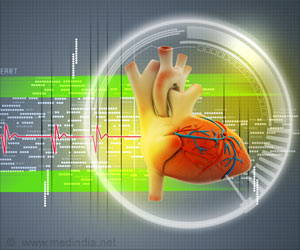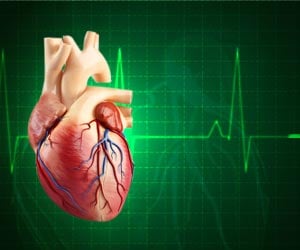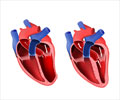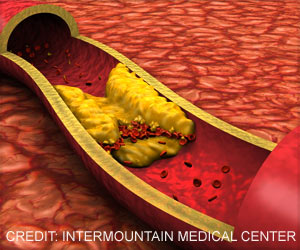Two chemicals that improve the ability to transform scar tissue in a heart into healthy, beating heart muscle have been identified by scientists.

‘Two newly identified chemicals improved the speed, quantity, and quality of direct cardiac reprogramming, bringing the technology one step closer to regenerating damaged hearts.’





Gladstone scientists identified two chemicals that
improve their ability to transform scar tissue in a heart into healthy,
beating heart muscle. The new discovery advances efforts to find new and
effective treatments for heart failure.It takes only three transcription factors - proteins that turn genes on or off in a cell - to reprogram connective tissue cells into heart muscle cells in a mouse. After a heart attack, connective tissue forms scar tissue at the site of the injury, contributing to heart failure.
The three factors, Gata4, Mef2c, and Tbx5 (GMT), work together to turn heart genes on in these cells and turn other genes off, effectively regenerating a damaged heart with its own cells. But the method is not foolproof - typically, only 10% of cells fully convert from scar tissue to muscle.
In the new study, published in Circulation, Gladstone scientists tested 5500 chemicals to try to improve this process. They identified two chemicals that increased the number of heart cells created by eight-fold. Moreover, the chemicals sped up the process of cell conversion, achieving in one week what used to take six to eight weeks.
"While our original process for direct cardiac reprogramming with GMT has been promising, it could be more efficient," said senior author Deepak Srivastava, director of the Gladstone Institute of Cardiovascular Disease. "With our screen, we discovered that chemically inhibiting two biological pathways active in embryonic formation improves the speed, quantity, and quality of the heart cells produced from our original process."
Advertisement
The scientists also used the chemicals to improve direct cardiac reprogramming of human cells, which is a more complicated process that requires additional factors. The two chemicals enabled the researchers to simplify the process bringing them one step closer to better treatments for heart failure.
Advertisement
Source-Eurekalert














